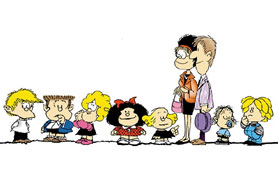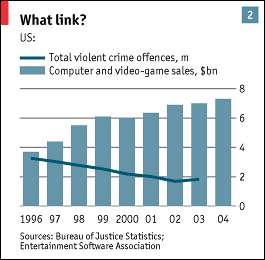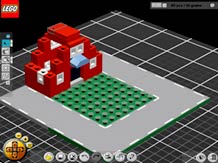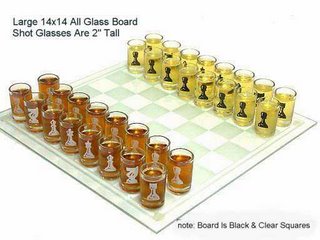(via gamasutra): "Global publisher Electronic Arts has announced that, using its video game 2006 FIFA World Cup as simulation, it predicts that the winner of the 2006 FIFA World Cup Germany will be the Czech Republic."
I imagine that gamers around the world play FIFA with their national teams and, depending on how superstitious they are, believe (or at least hope) their results will occur during the actual tournament (by the way, did we have a "games for the superstitious post"? if not, we should provide it soon). EA's case is similar, with the difference that their team is the game itself.
If this kind of prediction is the ultimate test for any game that intends to simulate a real event, why not put EA's football game into test? I have pasted the full list (taken from
marketwatch.com) of results below and I will keep you informed on how it compares to reality. I can't promise to update it every day, but I will try to post as often as I can.
PS: It starts tomorrow! Germany Vs. Costa Rica and Poland Vs. Ecuador.
EA SPORTS(TM) 2006 FIFA World Cup(TM) Results:Group Play
--------------------------------
Group A
--------------------------------
Germany 1 x 1 Costa Rica
Poland 2 x 1 Ecuador
Germany 2 X 1 Poland
Ecuador 1 x 3 Costa Rica
Ecuador 0 x 1 Germany
Costa Rica 2 x 1 Poland
Group B
--------------------------------
England 3 x 0 Paraguay
Trinidad & Tobago 1 x 0 Sweden
England 2 x 0 Trinidad & Tobago
Sweden 1 x 2 Paraguay
Sweden 2 x 2 England
Paraguay 2 x 1 Trinidad & Tobago
Group C
--------------------------------
Argentina 3 x 1 Ivory Coast
Serbia & Montenegro 0 x 1 Holland
Argentina 2 x 0 Serbia & Montenegro 0
Holland 2 x 1 Ivory Coast
Holland 1 x 1 Argentina
Ivory Coast 2 x 3 Serbia & Montenegro
Group D
--------------------------------
Mexico 1 x 1 Iran
Angola 0 x 3 Portugal
Mexico 2 x 0 Angola
Portugal 1 x 2 Iran
Portugal 2 x 3 Mexico
Iran 0 x 0 Angola
Group E
--------------------------------
Italy 2 x 2 Ghana
USA 2 x 2 Czech
Italy 2 x 3 USA
Czech 2 x 0 Ghana
Czech 2 x 1 Italy
Ghana 0 x 2 USA
Group F
--------------------------------
Brazil 3 x 1 Croatia
Australia 2 x 1 Japan
Brazil 1 x 1 Australia
Japan 1 x 1 Croatia
Japan 0 x 2 Brazil
Croatia 2 x 4 Australia
Group G
--------------------------------
France 2 x 2 Switzerland
Korea 1 x 1 Togo
France 3 x 0 Korea
Togo 0 x 2 Switzerland
Togo 0 x 2 France
Switzerland 2 x 1 Korea
Group H
--------------------------------
Spain 1 x 1 Ukraine
Tunisia 1 x 1 Saudia
Spain 2 x 1 Tunisia
Saudia 1 x 3 Ukraine
Saudia 0 x 2 Spain
Ukraine 2 x 1 Tunisia
Group of 16
--------------------------------
Costa Rica 2 (Wanchope (2))
Paraguay 0
Argentina 1 (Crespo)
Iran 0
USA 2 (Donovan, McBride)
Brazil 3 (Ronaldo, Ronaldinho, Robinho)
France 2 (Zidane (2))
Spain 1 (Torres)
Germany 1 (Podolski)
England 0
Holland 2 (Robben, Van Nistlerooy)
Mexico 4 (Bravo, Borgetti (2), Pardo)
Czech Rep. 3 (Koller (2), Galasek)
Australia 1 (Viduka)
Switzerland 2 (Frei, Vogel)
Ukraine 1 (Shevchenko)
Quarter Finals
--------------------------------
Costa Rica 1 (Wanchope)
Argentina 3 (Messi, Tevez, Riquelme)
Brazil 1 (Ronaldo)
France 0
Germany 2 (Podolski, Ballack)
Mexico 0
Czech Rep. 3 (Baros, Smicer, Koller)
Switzerland 0
Semi Finals
--------------------------------
Argentina 1 (Tevez)
Brazil 2 (Adriano (2))
Germany 0
Czech Rep. 2 (Baros, Nedved)
3rd Place Game
--------------------------------
Argentina 3 (Tevez, Messi, Galetti)
Germany 1 (Schweinsteiger)
Final
--------------------------------
Brazil 1 (Ronaldo)
Czech Rep. 2 (Baros, Rosicky)


















